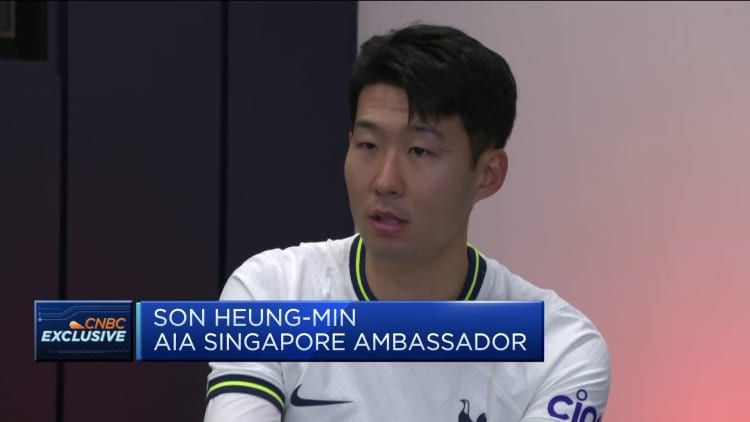[ad_1]

As captain of the South Korean soccer team and a forward for English Premier League club Tottenham Hotspur, Son Heung-min knows a thing or two about becoming a pro athlete.
In an interview with CNBC, Son shared his top tips on going pro and handling the pressures that come with it.
“Sleep well, eat well and do what you need, you know, like stay in the training ground when you need six hours, seven hours, eight hours,” he told CNBC’s Arabile Gumede in a video interview Friday.
Even if distractions are everywhere, the sport should always be the priority, Son believes.
“You have so many options, like, I don’t know, like video games, or like, that you always want to do more, you know, like, playing with friends,” he said. “I think you should be always thinking the number one thing is football.”
Son left South Korea at age 16 to join the German soccer club Hamburger SV, with whom he made his first appearance in a top European soccer league in 2010. After then spending some time playing for Germany’s Bayer Leverkusen, he switched to London-based Tottenham in 2015 for £22 million ($26.9 million).
Son also addressed some of the biggest lessons he has learned from his career so far.
“I think the lessons are, just don’t try to chase your happiness,” he told CNBC. Many people constantly search for happiness, he says — when in fact it can come from things right in front of you like your family or job, Son believes.
Soccer star Son Heung-min shares top tips for making it as a pro athlete the biggest lessons he’s learnt so far.
Photo by James Williamson – Ama | Getty Images Sport | Getty Images
One of the key moments when this became clear to him was just before the 2022 World Cup in Qatar, when he got injured and was not sure if he would be able to lead the South Korean soccer team into the top international tournament. Son had a fracture around his left eye, which forced him to play with a protective face mask.
“I was there so I was playing with the mask,” he said. “I think it’s just a lesson that I learnt because I think positive. […] Happiness is the most important thing.”
Another way Son says he deals with the pressures of being a pro athlete is by falling back on his family and making sure he talks to them about his mental health.
“I’m sad, they’re sad, we are happy and we’re all happy,” he says. “You can always share the feelings; you can always go with the family.”
[ad_2]
